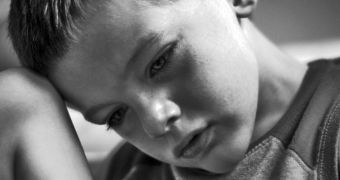A paper published in the November issue of The American Journal of Psychiatry reveals an interesting genetic link between people suffering from autism and members of their family who only exhibit signs of specific speech or language impairments. The study was led by experts at the Rutgers University, in New Jersey.
The work focused on family members whose speech or language difficulties were not explained by other cognitive or physical factors. The team discovered that a narrow region of two chromosomes determined if a person will turn out to be autistic, or just exhibit speech problems.
The same region can be responsible for generating oral and written language impairments in some members of a family, while triggering autism spectrum disorders (ASD) in other members. This discovery could have significant implications for the development of new therapies against autism.
An interesting thing to note here is that – even though nearly 7 percent of children worldwide exhibit specific language impairments – this is not considered to be an ASD. At the same time, half of autistic children display language impairment to some degree.
Statistically, autism affects 1 in 88 children in the Unites States. “In this group of families we are trying to find genetic factors that might connect them. This research is important because it is hard to understand autism until we find the genes that might be involved,” says Dr. Linda Brzustowicz.
She is the chair of the Rutgers Department of Genetics and a professor at the university, and led the new research project. Brzustowicz knows that there is no single gene causing autism, but rather a web of gene abnormalities that may increase the odds of a person developing an ASD, PsychCentral reports.
However, investigations such as these can help researchers shed some light on the genetic interplays underpinning the emergence of autism in children. The new study was conducted on 79 families, each of which featured an autistic child, and one who had speech or language impairment.
Genetic links were also discovered in areas related to repetitive, obsessive-compulsive behaviors and social interaction skills. These behaviors and skills are very difficult for autistic persons to understand, and their lack represents a hallmark of the condition.
“This is just the beginning. We are finding evidence of genetic similarities with the hopes of being able to identify targets that might respond to pharmacological treatments,” Brzustowicz concludes.

 14 DAY TRIAL //
14 DAY TRIAL //